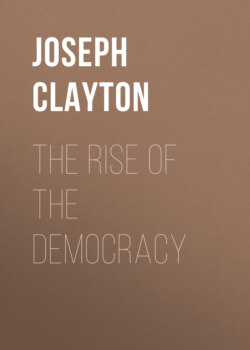Читать книгу The Rise of the Democracy - Joseph Clayton - Страница 3
На сайте Литреса книга снята с продажи.
PREFACE
ОглавлениеTable of Contents
This short account of the rise of political democracy is necessarily but an outline of the matter, and while it is not easy to define the exact limits, there is no difficulty in noting omissions. For instance, there is scarcely any reference to the work of poets or pamphleteers. John Ball's rhyming letters are quoted, but not the poems of Langland, and the political songs of the Middle Ages are hardly mentioned. The host of political pamphleteers in the seventeenth century are excluded, with the exception of Lilburne and Winstanley, whose work deserves better treatment from posterity than it received from contemporaries. Defoe's vigorous services for the Whigs are unnoticed, and the democratic note in much of the poetry of Burns, Blake, Byron and Shelley is left unconsidered, and the influence of these poets undiscussed. The anti-Corn Law rhymes of Ebenezer Eliot, and the Chartist songs of Ernest Jones were notable inspirations in their day, and in our own times Walt Whitman and Mr. Edward Carpenter have been the chief singers of democracy. But a whole volume at least might be written on the part the pen has played in the struggle towards democracy.
Again, there is no mention of Ireland in this short sketch. A Nationalist movement is not necessarily a democratic movement, and the Irish Nationalist Party includes men of very various political opinions, whose single point of agreement is the demand for Home Rule. In India and Egypt the agitation is for representative institutions. Ireland might, or might not, become a democracy under Home Rule—who can say?
The aim of the present writer has been to trace the travelled road of the English people towards democracy, and to point out certain landmarks on that road, in the hope that readers may be turned to examine more closely for themselves the journey taken. For the long march teems with adventure and spirited enterprise; and, noting mistakes and failures in the past, we may surely and wisely, and yet with greater daring and finer courage, pursue the road, not unmindful of the charge committed to us in the centuries left behind.
J.C.
Hampstead,
September, 1911.
